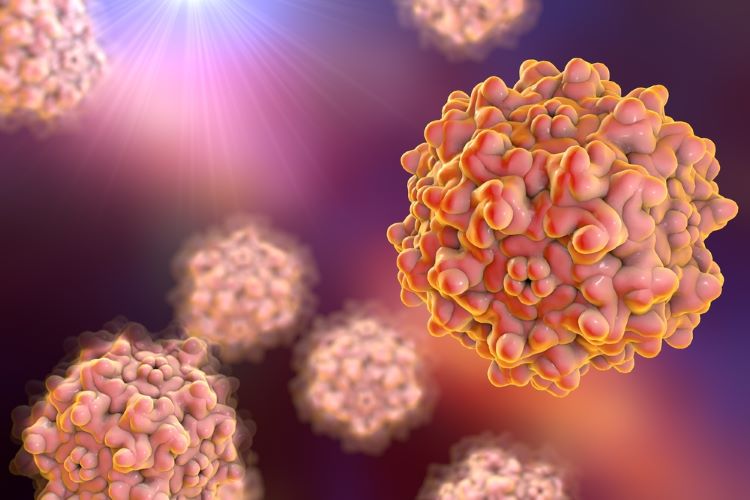The evolution of AAVs in cell and gene therapy
Posted: 20 July 2023 | Catherine Eckford (European Pharmaceutical Review) | No comments yet
AAV development for cell and gene therapy in 2023 is being impacted by manufacturing and regulation challenges, however advancing technologies offer opportunity, according to leaders in the field.


As proven by recent regulatory approvals sweeping the cell and gene therapy industry, particularly within Europe and the US, these pioneering treatments have demonstrated great capacity in helping to resolve hard-to-treat diseases.
The Alliance for Regenerative Medicine (ARM) stated in a 2022 report that adeno-associated viral vector (AAV) is the primary vector in ongoing gene therapy trials.
In June 2023, an array of leading voices in AAV development for cell and gene therapies articulated the current challenges and their optimism for the rapidly advancing sector at the Cell and Gene Therapy Summit event in London.
What makes cell and gene therapy so exciting is that the therapies have a ”potential curative impact”, according to Dr Ramin Baghirzade, Global Commercial Head of Gene Therapy at Charles River.
Dr Baghirzade continued, highlighting that since a particular defining moment for the industry in the late 90s, which resulted in an unfortunate patient fatality, “there is a lot more focus on safety” in gene therapy clinical trials today.
More recently, approvals of AAV-based treatments for haemophilia A include the FDA’s [authorisation] of Roctavian in June 2023″
In his presentation on the current challenges and opportunities in haemophilia and gene therapy, Dr Paul Batty, Associate Professor in Haemophilia at UCL IRIS, drew attention to approvals of AAV-based treatments for haemophilia A.
This included the EC’s approval of Roctavian in August 2022, which was the first gene therapy for haemophilia A. More recently, the FDA granted approval of Roctavian in June 2023. Then for haemophilia B, this follows the EC’s decision to approve the first gene therapy for the condition in February 2023.
Batty discussed some of the capabilities of haemophilia gene therapies in 2023. For instance, he noted their efficacy for bleed reduction and that the treatments have shown to be well tolerated, though occasional infusion reactions have been reported.
However, Batty observed that challenges and ‘unknowns’ include long term efficacy and the duration of expression. Batty also mentioned considerations for improving access to gene therapies. He shared two examples: cost payment models and ensuring infrastructure are ready for clinical delivery of the gene therapies.
The challenge of regulation in the cell and gene therapy sector
Dr Julie Warner, VP Regulatory Affairs at Boyd Consultants shared insight on the regulatory challenges of ATMP development in her presentation. She stated that some of the key concerns were around viral safety, immunogenicity and the fact that long term side effects are unknown.
For cell and gene therapy, a “big issue” she stated, was the complexity of manufacturing. For these therapies, Warner highlighted their short shelf life and scale up. She also touched on production costs being irrecoverable—there is a high cost per patient.
In terms of regulatory approvals, Warner added that challenges include differences in trial approval process and timelines between the EU, UK and the US.
Current directives are “old [and] do not address modern therapies”, according to Warner. She also considered that “clinical trial regulation is not ideal for ATMPs” and therefore can be improved. For GMO products, she noted that these need separate regulation.
Understanding the new EU Clinical Trial Regulation: seven things sponsors should know
Regulatory harmonisation of CGTs
“when we talk about harmonisation across the US and Europe, unfortunately you will find that there is not much guidance by the International Council for Harmonisation (ICH) on advanced therapies,” Warner explained. “There are only three [pieces of guidance], with one not fully implemented.”
Europe does “have regulations and directives that are applicable to other medicinal products that are also relevant to advanced therapies”, although it is not specifically stated, she added.
“[In] the European regulatory framework for advanced therapies, we are guided overall by REGULATION (EC) No 1394/2007,” Warner noted. Although that provides the overall framework for advanced therapies, “this is in the context of marketed advanced therapies”.
However, while we are moving towards more harmonisation with the introduction of clinical trials regulation, Warner commented, “it is still not ideal for advanced therapies”.
harmonisation [for cell and gene therapy] is no less possible than for any other product”
As a final question to the audience, Warner questioned whether full harmonisation is possible. Her answer? “Yes, but only with careful planning and appropriate risk mitigation and regulator engagement”. Positively, she added: “harmonisation is no less possible than for any other product… there will be some interesting developments in this space in the next couple of years if we can get everybody on board”.
AAV development for cell and gene therapy
The topic of product quality was introduced in a panel discussion on AAVs in gene therapy, which saw speakers address the obstacles and prospects concerning IND application through to commercialisation.
An audience member agreed on a point the panel had deliberated earlier: “as an industry, we are moving towards full good manufacturing practice (GMP), late-stage commercial”. Tony Hitchcock, Independent Consultant at AGH Bioconsulting stated that as “every contract manufacturing organisation (CMO) has their own definition of high quality” GMP is attractive in terms of QC (quality control) principles, because of the standards.
Moving the discussion on, Alex Bloom, Chief Technology Officer of AviadoBio declared: “Thinking whether you change is inevitable in biopharma, particularly for cell and gene therapy, where we are just not mature on the technology curve.”
In a separate dialogue, Dr Baghirzade agreed that the industry “is still evolving”. Therefore, to bring down costs, its players “need to focus also a lot more on enabling technologies and having a high yield cell line”.
To end the panel, Dr Baghirzade concluded that there is “a lot of excitement and positivity” in the cell and gene therapy field. While he claimed that “the gold standard does not always exist… some argue that as more products get to the market, ‘gold standards’ will be created for some of the grey areas [still present], the bar will likely increase and that is where the new standards will be”.
Related topics
Biologics, Biopharmaceuticals, Clinical Development, Clinical Trials, Drug Development, Drug Manufacturing, Drug Safety, Gene therapy, ICH guidelines, Industry Insight, Manufacturing, QA/QC, Regulation & Legislation, Research & Development (R&D), Technology, Therapeutics
Related organisations
AGH Bioconsulting, Alex Bloom (AviadoBio), Alliance for Regenerative Medicine (ARM), AviadoBio, Boyd Consultants, Charles River Labs, International Council for Harmonisation (ICH), University College London (UCL)
Related drugs
advanced therapy medicinal products (ATMP), cell therapy, Gene therapy
Related people
Dr Julie Warner (Boyd Consultants), Dr Paul Batty (UCL Iris), Dr Ramin Baghirzade (Charles River)








